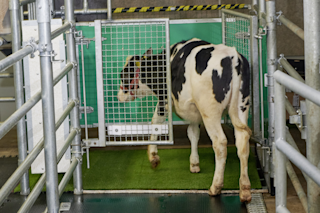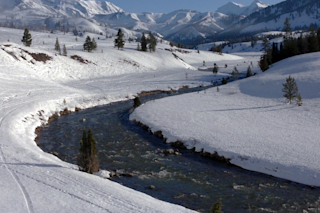The greenhouse gases that cows release via their burps, farts and manure are posing a big problem, and scientists have tried everything from face masks to seaweed diets to solve it. Now, a collaboration between German and New Zealander researchers has resulted in a brand-new approach that is likely familiar to parents everywhere: potty-training.
In their study, published in Current Biology in September, the researchers used a combination of rewards (a molasses mixture or crushed barley) and punishments (spritzes of cold water) to teach 11 of 16 calves to urinate in a latrine — called the "MooLoo" — in just under two weeks.
“Remarkably, the calves showed a level of performance comparable to that of children and superior to that of very young children,” write the study’s authors. They add that their success demonstrates the incredible cognitive capacities of cows — potty-training requires coordination of a complex chain of behaviors, ...














